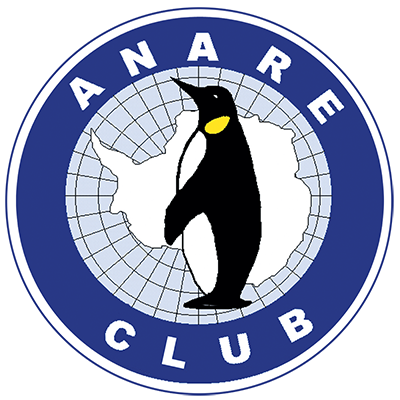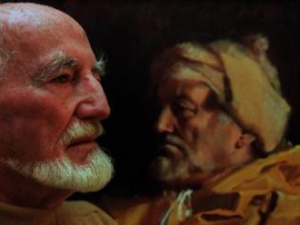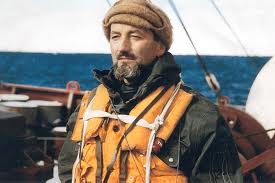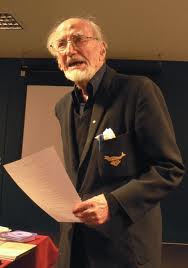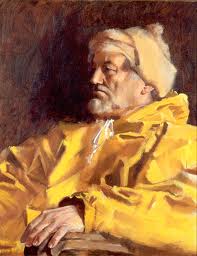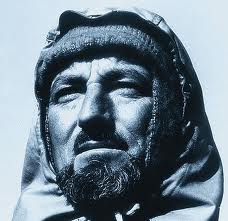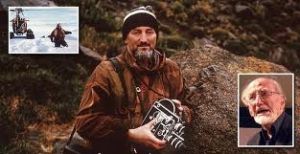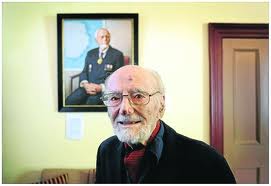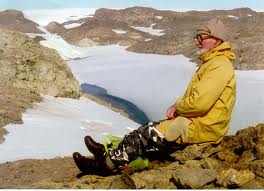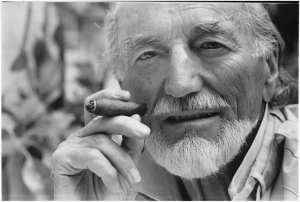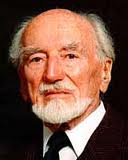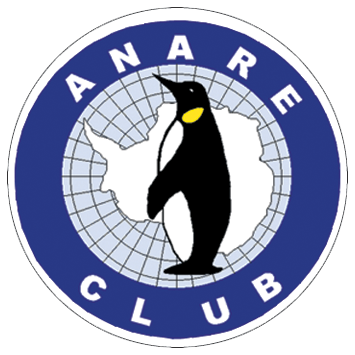Vale Phillip Garth Law AC CBE
1912 – 2010
Obituary by Martin Schulz, Melbourne Herald Sun, 1 March 2010
“Antarctic pioneer Dr Phillip Law dies, aged 97, in Melbourne
Dr Phillip Law helped map nearly 5000km of the Antarctic coastline and established the Mawson, Davey and Casey stations.
In a career spanning four decades, “Mr Antarctica” led 28 separate trips to sites never visited before, and was a tireless promoter of Australia-Antarctic interests.
While Sir Douglas Mawson set up the Australian Antarctic Territory, it was Dr Law that forged Australia’s presence in Antarctica, Environment Minister Peter Garrett said today.
“Dr Law is among the true Antarctic pioneers and explorers,” Mr Garrett said.
Dr Law was appointed the first director of the Antarctic Division in 1949 – a position he held for 17 years.
He led the expedition party that founded Australia’s first Antarctic station in 1954 and then its second, the Davis station, three years later.
In 1959, he negotiated the transfer of the United States-owned Wilkes station into Australian hands before initiating construction of a replacement station, Casey.
In 28 trips – the last at age 91 – Dr Law once estimated he had stared death in the face 25 times out of the 28.
His most terrifying brush with death in Antarctic came while being trapped on a ship in a hurricane for 26 hours.
At the time, the crew of the ship wrote final messages to families, and assumed they would die as the ship listed dangerously in the icy winds and high seas.
Dr Law retired from the Antarctic Division in 1966 and worked as an academic until 1977.
He was made a Companion of the Order of Australia in 1995 for his contribution to Australian achievement in the Antarctic.
He died on Sunday.
Obituary by Andrew Darby, Melbourne Age, 2 March 2010
“Pioneer who opened up Antarctica dies at 97”
His family described his death as marking the end of the heroic era of 20th-century Antarctic exploration, and Environment Minister Peter Garrett said Dr Law was among the continent’s true pioneers. ”Phil Law might have been a small man in stature, but he bestrode Australia’s Antarctic Division like a colossus,” said Antarctic historian Tim Bowden.
He also had a strong sense of his own place in history. ”Scott, Shackleton, Mawson, and these men,” Dr Law told The Age in 2008. ”I explored about 10 times as much as them all put together.”
Dr Law said he was able to ride the wave of post-World War II international Antarctic endeavour, making 23 voyages to the region and 28 first landings along the 5000-kilometre coastline of the Australian Antarctic Territory. He said his early exploration was not spurred by science: ”The motivation in the early days was territorial expansion.”
In the depths of the Cold War, he described racing the Soviet Union to be the first to erect cairns and take possession of pieces of rocky coastline exposed from the ice. Using war surplus ships and supplies, he led the construction of the longest-established Antarctic continental base, Mawson, in 1954, when his group were the only people in eastern Antarctica. ”It was an extremely hazardous operation,” he said. ”If anything had gone wrong, there was no one in the world who could have come down to rescue us.”
Now Australia has three year-round continental bases, a $114 million federal Antarctic budget and shipping and air links. There are also 46 Antarctic Treaty member nations, half with permanent bases, and up to 40,000 tourists a year.
Mr Bowden said one of Dr Law’s great contributions was not only to lead exploration but to devise scientific programs that endured. Today’s glaciology yields valuable data on global warming through ice cores and observations of collapsing ice shelves. Dr Law said that conservation in Antarctica was ”completely overdone” and a reasonable balance would have resulted in the approval of a 1980s attempt to establish a system of controls over mining. Instead, he said, mining was banned and the rules were thrown out.
He made his last visit to Antarctica in 1998 at the age of 85, and strongly believed more tourists should go there. He claimed in his book You Have to Be Lucky to have escaped mortal danger 20 times. ”I wrote the book because I got annoyed at always being considered not to have taken any risks because I’m not dead,” he said.
His family said he died peacefully in a Melbourne nursing home on Sunday. A memorial gathering will be held, probably on April 21, his birthday. Flags were at half-mast at Australia’s Antarctic stations yesterday.
Article from The Mercury, Hobart, Tasmania
“Phil Law ‘Mr Antarctica’ dies”
In a career spanning four decades, Dr Law helped map more than 5000km of Antarctic coastline and established each of Australia’s three bases on the great white continent.
An avid explorer, he made 28 separate trips there and was a tireless promoter of Australia-Antarctic interests. While Sir Douglas Mawson set up the Australian Antarctic Territory, it was Dr Law that forged Australia’s presence in Antarctica, Environment Minister Peter Garrett said.
“Often referred to affectionately as Mr Antarctica, Dr Law is among the true Antarctic pioneers and explorers,” Mr Garrett said.
Dr Law was appointed the first director of the Antarctic Division in 1949 – a position he held for 17 years. He led the expedition party that founded Australia’s first Antarctic station in 1954 and then its second, the Davis station, three years later.
In 1959, he negotiated the transfer of the United States-owned Wilkes station into Australian hands before initiating construction of a replacement station, Casey.
In 28 trips – the last at age 91 – Dr Law once estimated he had stared death in the face 25 times out of the 28. His most terrifying brush with death in Antarctic came while being trapped on a ship in a hurricane for 26 hours.
Dr Law retired from the Antarctic Division in 1966 and worked as an academic until 1977.
He was made a Companion of the Order of Australia in 1995 for his contribution to Australian achievement in the Antarctic. He died in Melbourne on Sunday.
A brilliant career Leader, sports man, scientist, Antarctic explorer & educationist
We shall miss you always
Rest in Peace Dear Brother
In accordance with Phillip’s wishes a private Cremation will be held.
Published in: The Age, Tuesday March 2nd 2010.
Geelong Region, Scouts Australia.
Wednesday, 3 March 2010
A life so full; from science and the Antarctic to motoring,sports, and the arts.
Although I only knew him for his last few years, I feel privileged to be touched by his “Law Luck”.
Sincere condolences to his family, friends and colleagues.
Sue Halliwell. Judith and Rowland Jubb,
Anthea Wallhead and families.
Published in: Herald Sun, Friday, 5 March 2010
It was a privilege to work with one whose foresight, command and true leadership led the Victorian Institute of Colleges (VIC) as Vice-President and many other activities. His legacy in education stands particularly in the strength and status of institutions associated with the VIC.
His father, A.J. Law, Principal of Melbourne Teachers’ College (1939 – 1950) and my teacher set a high standard. As a friend of both father and son, I have fond memories of two great men whose contributions to education in Victoria paved it’s direction today.
Personally, and on behalf of my family, I extend deepest sympathy to Wendy and other family members. Thank you Dr Phillip Law
Dr Lawrie Shears, former Director-General of Education.
Published in: Herald Sun, Thursday, 4 March 2010
Director of the Australian Antarctic Division (1949-1966).
Leader of twenty-eight voyages of discovery in Antarctica.
A true pioneer among men, he will be sadly missed and remembered with affection by all who served under him.
Ralph Fletcher, President ANARE Club.
Published in: Herald Sun, Tuesday, 2 March 2010
Syd and Jude Kirkby.
Published in: Herald Sun, Tuesday, 2 March 2010
Phillip’s early career centred around our Melbourne Teachers College and university where he gained degrees in education and science and was awarded his doctorate. His passion for education continued throughout his life. Members of the Melbourne Graduate School of Education shared his passion, acknowledged his contributions and appreciated his regular contact.
On behalf of our Graduate School I offer sincere condolence to the family and friends of this great and generous man who was an inspiration to so many.
Professor Field Rickards
Dean, Melbourne Graduate School of Education
The University of Melbourne
Published in: Herald Sun, Friday March 5, 2010
I will always cherish my memory of you and the effect you had on my life.
Bob Lachal
Published in: The Age, Wednesday March 3, 2010.
